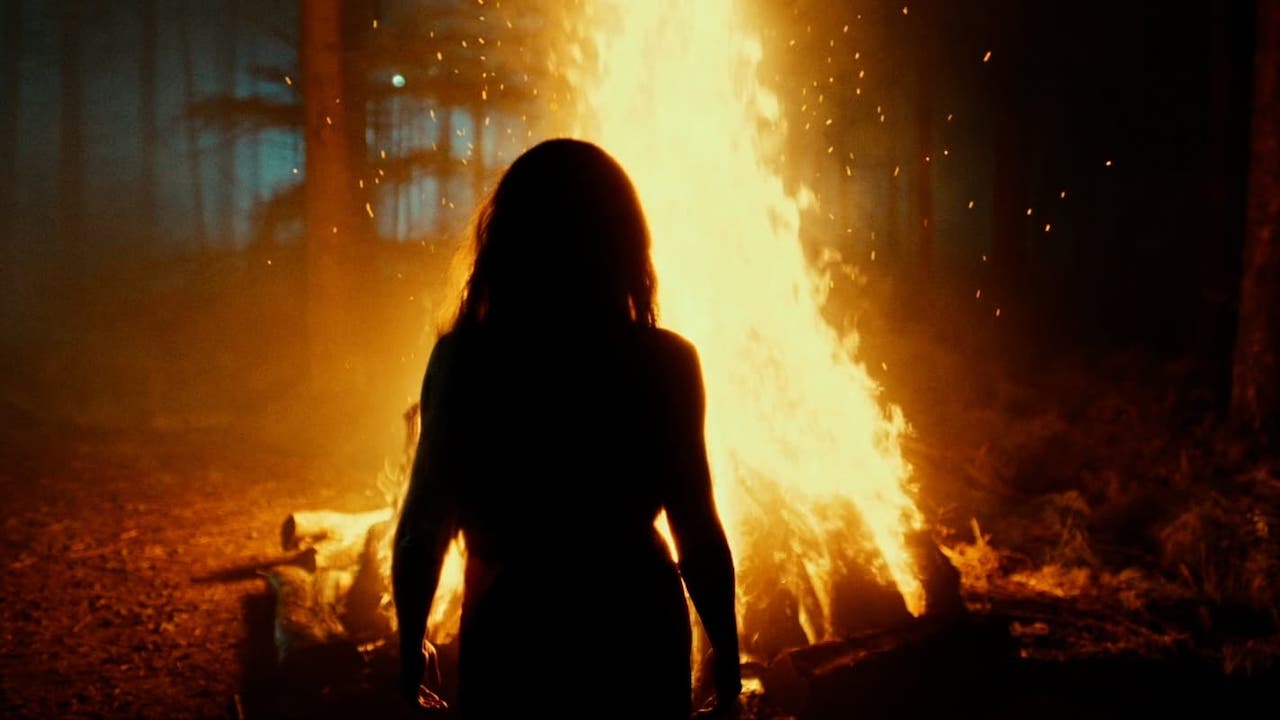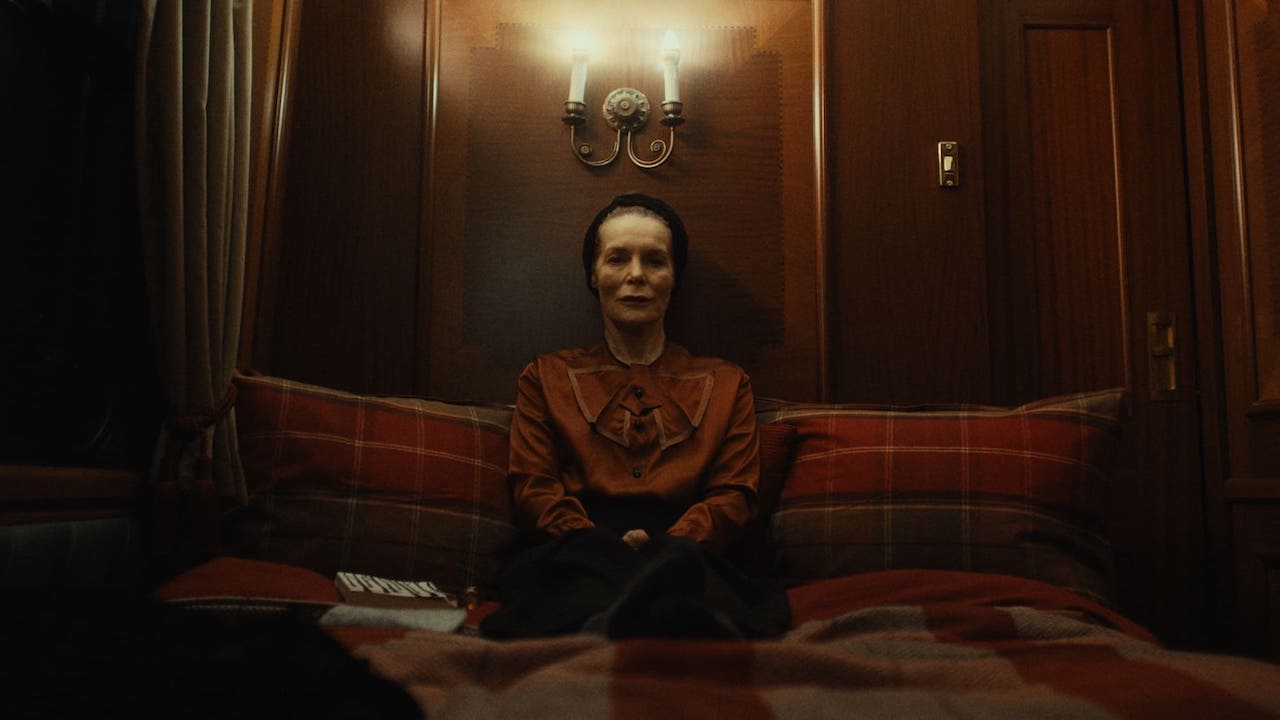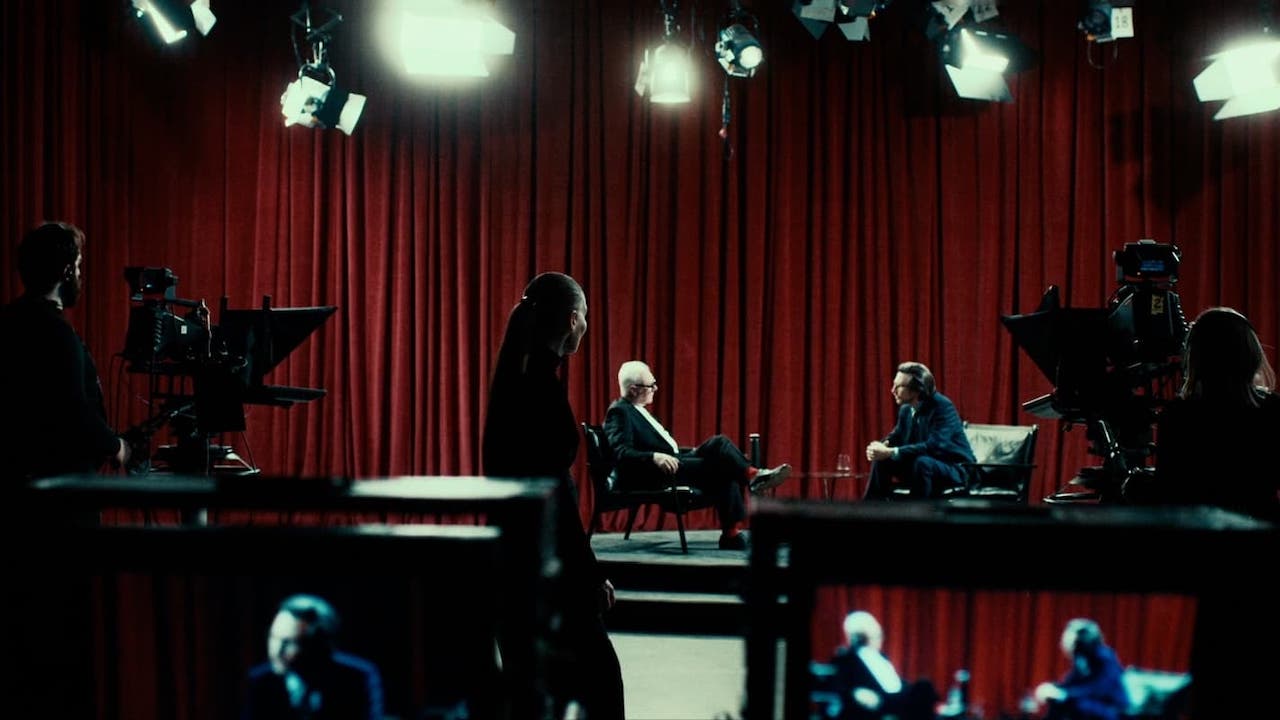Beauty fades but trauma lives forever, in unfocused horror debut She Will

A self-loathing Scottish actress yearns for her former glory in Charlotte Colbert’s first film She Will. As Lillian Crawford writes, the horror debut, now on Shudder, has a sickening subplot that gets sadly lost in the noise.
She Will, the debut film by Charlotte Colbert, opens with a title card: “Dario Argento presents”. It is a signal of quality, that this is a film supported and produced by one of the most striking cinematic voices in the history of horror. But it is also a warning, that what lies ahead will push the boundaries of permissibility and shake the viewer to the core. It promises too much.
That’s not to say that there aren’t a lot of ideas in She Will, often good ones. Colbert and co-writer Kitty Percy take the classic “cabin in the woods” premise and mix it with an anti-ageing allegory that speaks to vanity across all genders. At the film’s heart is Veronica Ghent, an elderly film actress played by a frightful Alice Krige, who could draw blood with the sharpness of her facial bone structure. Her taut skin and smoker’s wrinkles are hauntingly reminiscent of Norma Desmond, always held in tight close-up.
The rest of the troupe are more like the Satanist apartment inhabitants in Rosemary’s Baby, a cult founded in the belief of eternal youth through relaxation and recuperation. At the group’s head is a typically camp Rupert Everett, bedecked in furs and absurd pearl earrings as a self-styled guru. He attempts to persuade Veronica to join her fellow crones in ridiculous activities such as silent yoga or drawing with charcoal en plein air. It would be enough to drive anyone to madness.
Simmering away beneath the conventional surface are well-meaning but clunkily handled themes of misogyny and embedded female trauma. Veronica has gone to the Scottish retreat to recover following a double mastectomy, an operation she fears has removed her desirability. “Androgyny”, she says to her nurse Desi, a subtle but strong performance from Kota Eberhardt, “so attractive in the young and so repugnant in the old.” The jealousy she feels for the younger woman is palpable, and one which plagues her nightmares.

Her fears are connected directly to the earth of the Scottish highlands itself, in the very peat beneath her feet. She feels tied to the witches hunted and slaughtered during the Early Modern period, women who were often similarly vilified for their lack of sexual appeal to men. It is from the witches that many of the more horrifying visual tricks of the film emerge, caked in blood in rapid oneiric montages that rip through the film’s eerie status quo.
This fairly low-budget trickery soils the atmosphere like many of the throwaway lines of dialogue that largely land with a thud on the wooden floor. It detracts from the message Colbert and Percy want to drive home with the film about ageing and men’s attitudes towards women, that they might vocalise support for feminism while really endorsing women’s subordination. In one scene Veronica causes the hand of a man bursting into a misogynistic rage to ignite, something which many of us have surely willed at one time or another.

The problem with weaving so many horror conventions together is a distinct lack of clarity which serves to undermine the story She Will tries to tell. The horror film here serves as decoration to a far more distressing narrative about Veronica’s childhood when she started working in film. Aged just thirteen, she was cast in a film directed by Eric Hathbourne, played by that most chilling of British actors Malcolm McDowell, who developed what he calls a “special bond” with the young Veronica. It is truly sickening.
Veronica’s impetus to seek out Hathbourne is a news bulletin announcing the casting search for a new young actress to play her character in the film’s remake—also to be directed by Hathbourne. The repetitions of harassment and abuse, dismissed by Hathbourne as belonging to another era, are a compelling driving force, but with all the other baggage hanging around this thread, it gets lost in the noise.




















